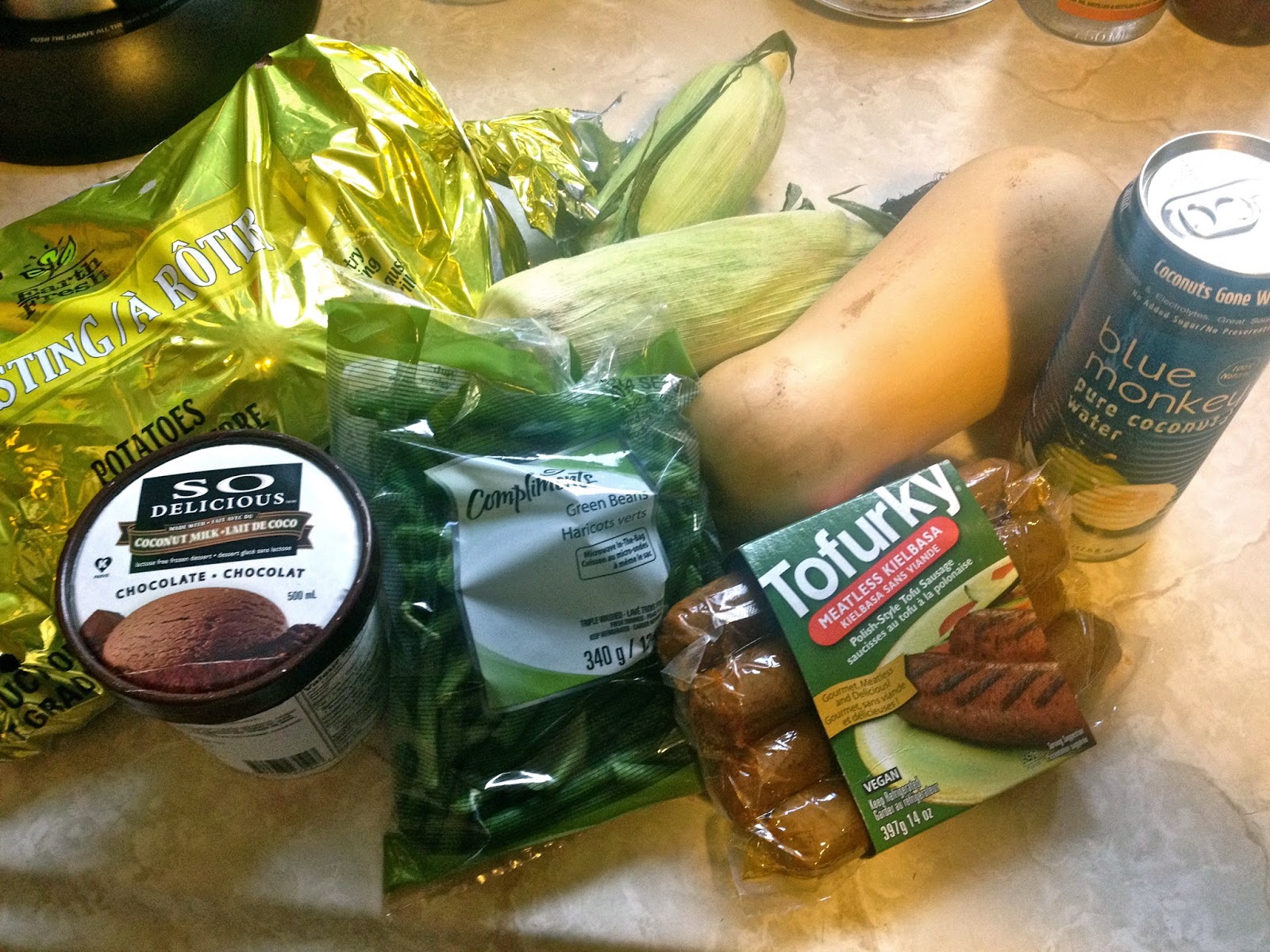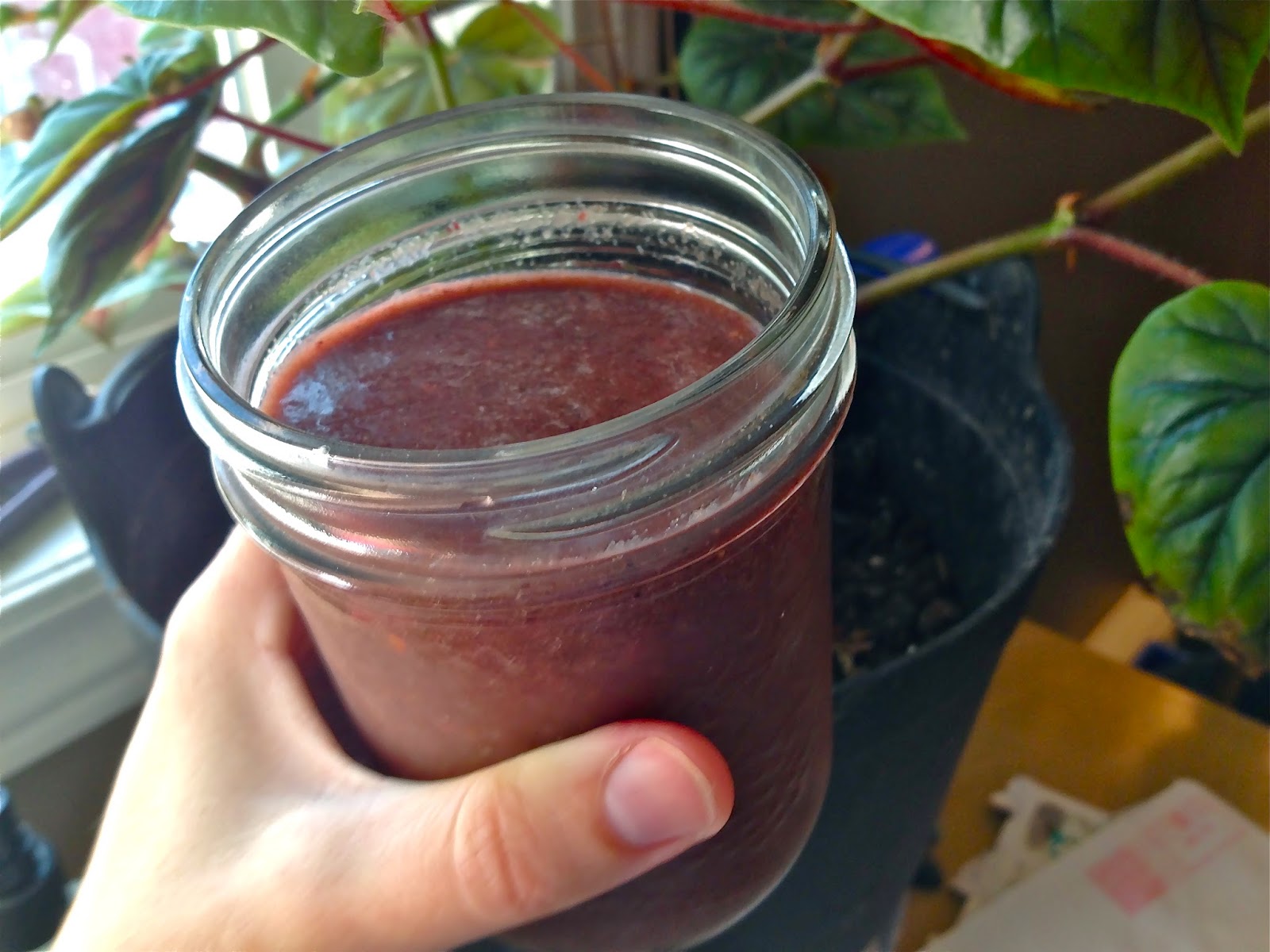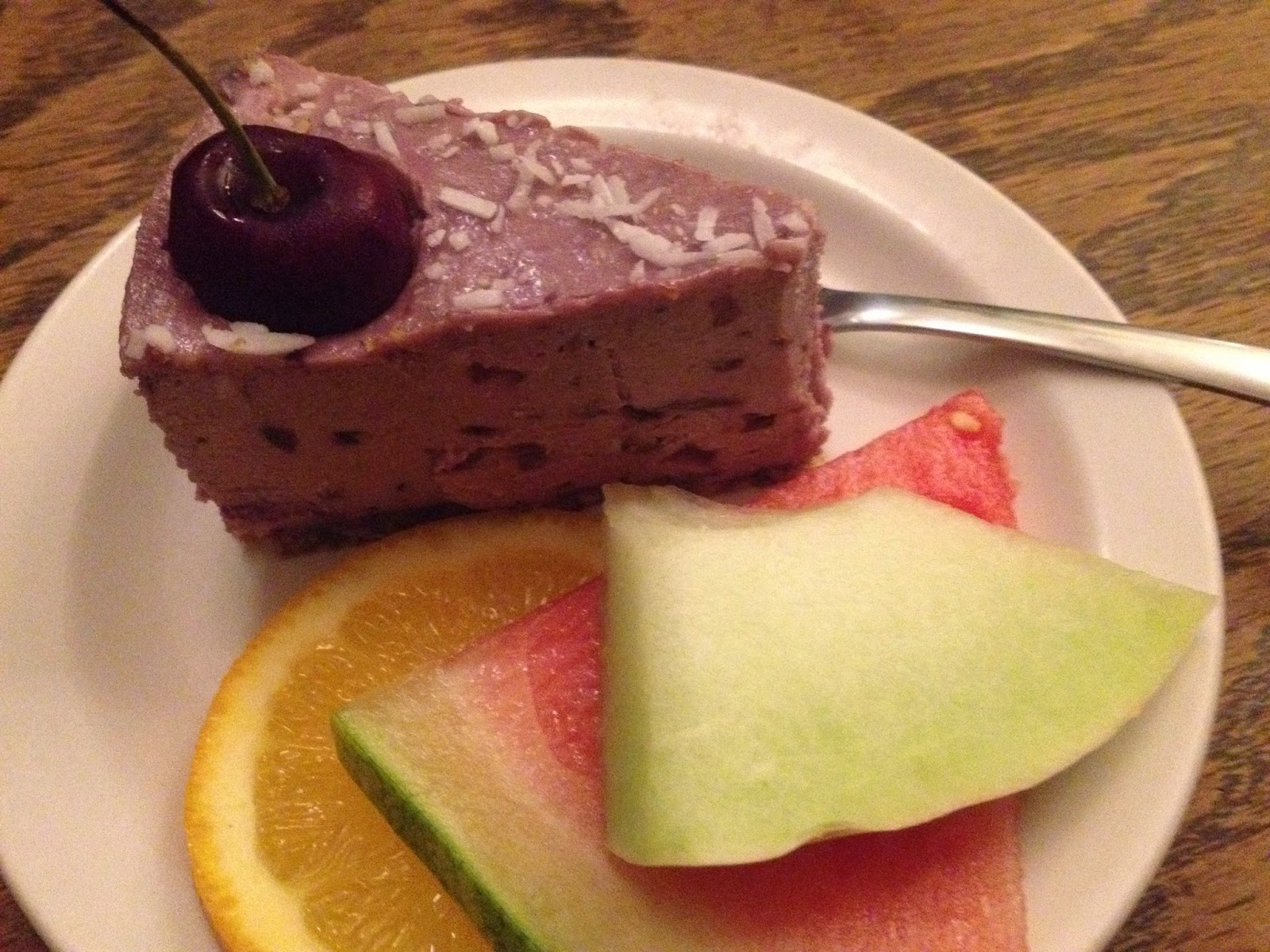My former coworker, journalist Christina Myers, was once a full-fledged, card-carrying vegetarian, but as of her late 20s, she's gone back to eating meat again. In a recent interview, I asked her about her experience with being vegetarian and why she reverted to an omnivore diet.
1. When did you
become a vegetarian?
I was 19. I had been
in Europe and arrived home within a few days of my nineteenth birthday, and at
some point between being in Europe and being at home, I had decided that I was
going to do this.
2. Did travelling
have something to do with that decision?
Only in the sense that
being away had made me be a little bit more independent and a little bit less
inclined to worry about what other people thought. So I was a little bit more
inclined to make a decision that I felt was right for me.
3. What prompted
you to stop eating animals?
Well, if you had asked
me that question when I was 19, I would have had a very long list of extremely
rational social, political, and environmental answers. That was sort of a time
– that would have been about 1995 – when there was a lot of talk, and PETA was
getting bigger and talking about conditions on farms and animal rights,
generally. So I had all sorts of logical, rational surface reasons that people
would have had a hard time arguing with me over. But if I’m being really
honest, which is hard to do, and it’s taken me 20 years to figure it out, the
real reason underneath it is that it seemed, subconsciously, like an easy way
to eat less food that was bad for me. To maybe lose weight. To have less fat
and calories. That was the super low-fat era, when everything was like, ‘Cut
out as much fat from your diet as you can. Fat is really bad for you, saturated
fat is particularly bad for you,’ and, of course, those were the red meats,
eggs, although I continued to eat eggs while I was a vegetarian… but I had all
these lovely intellectual reasons, and the real reason is that I thought it
would probably help me lose weight, and be healthier, although I don’t really
think health was the motivator. It was how did I look, and could I lose weight
out of this.
4. So, would you
say it was more for health than animal welfare that you cut out meat?
I would say, health,
yeah. That would be the main reason.
5. Did you find it
challenging to switch to a more restricted diet?
It was like,
overnight, and it was not hard at all. I just decided and it just was like a
switch. I can’t even really explain it. I just stopped eating meat of any kind,
but I continued to eat eggs and dairy.
6. Did you still
eat fish and seafood?
No, not for a very
long time. When I reintroduced meat, seafood was the first thing I
reintroduced. But that was like, nine years later. I was a vegetarian for about
eight or nine years. And there was no ‘sometimes;’ I was fully vegetarian 100
per cent of the time. I did not eat beef, chicken, lamb, anything. Not even
seafood.
7. Did you ever try
being vegan?
I was always just
lacto-ovo vegetarian. There were no calories involved in wearing leather boots,
so on some subconscious level, I just never asked those (vegan-related)
questions of myself.
8. Had you planned
to be a vegetarian for life?
I think I thought I’d
continue that way for a very long time, if not forever. It certainly felt quite
virtuous, I’d say. It sort of felt nice to say, “Oh, no, I don’t eat that,” and
to feel like I was sort of committed to something ethically and
philosophically.
9. When did you
decide to start eating meat again?
I was about 27 or 28.
10. What made you
decide to go back to eating meat?
The slow realization
that I was not being careful in the way that I was eating vegetarian. When I’d
started I was being careful to try to get consistent sources of healthy
protein, and over time, which I think happens to a lot of young women who
become vegetarian – and this is certainly not a blanket statement about
vegetarians; I know there are certainly very earnest vegetarians who really
take the time to think about what they’re eating – my diet ended up filling up
with a lot of pasta, and rice, and bread, and so over time, this effort that I
had made to make sure I was having, say, tofu or eggs from time-to-time, (of
course those had to be limited as well,) or beans and rice in combination, and
so on, that had sort of fallen by the wayside of being busy with school and
work and building my career and all of that.
11. How did you go
about reintroducing meat into your diet?
I remember it very
clearly; I was at a pub with some friends, and we were ordering food and I
always had the same sort of food, over and over and over again, and I ordered a
tuna sandwich and I ate it and it felt very strange to be eating tuna. It was
obviously a very different texture than I’d had in a really long time, but
within, like, 15 minutes, I felt so good. I just had such a rush of energy, and
I just felt so much better. From there I slowly reintroduced seafood and then
poultry and then eventually I reintroduced beef and lamb and other foods as
well, over the course of about six months.
12. So you felt
better right away after dropping the vegetarian diet?
Yes, absolutely. My
energy really returned very quickly, and now, again, retrospectively, having
thought about it over the years, I can see now that it’s because the meat I
reintroduced, the protein sources I reintroduced bumped out some of the grain
products that had taken up so much of my diet. There was more balance.
13. Did you have
any regrets when you decided to go back to being an omnivore?
No, because I know a
lot of people would say, you know, the counter argument, that they noticed an
immediate difference when they stopped eating meat, and certainly my experience
is not necessarily reflective of anybody else’s. But for me, it was really the
exact opposite. Even when I think about the first few years when I was a
vegetarian, you know, I was very careful. I spent a lot of time reading and
getting books out of the library, and I read about how to be balanced, what
foods to eat and, I mean, there’s no point in regretting things, but I think
that being a vegetarian for that long, at least in the way that I was being a
vegetarian, I would say significantly damaged my health over the long run.
14. Did you take
supplements while you were on a restricted diet?
Yeah, I’ve always
taken a multivitamin, and I’m pretty sure I was taking a B-complex for a really
long time because that’s something that I’d heard was hard to get in a
vegetarian diet.
15. What was the
best part of being vegetarian?
Cheap groceries! It
costs a lot less to buy food when there’s no meat involved. That’s one. Feeling
like I was doing the right thing ethically, that’s another.
16. What was the
worst part of being vegetarian?
The worst part was
feeling like I was doing everything right, the way that I’d been taught to eat,
and yet getting progressively less well. And I don’t mean in any huge kind of
way, but I mean not being as energetic as I could have been, not being as
healthy as I could have been, not maintaining my strength. I think I probably
lost muscle tone over that period. If you’d asked what was the worst part of
being vegetarian at the time I was vegetarian, I probably would have just said
having fewer choices.
17. Did you ever
feel you were doing the “right thing” when you were a vegetarian?
I absolutely felt like
I was doing the right thing in terms of humane treatment of animals. Every
person that became a vegetarian would be lowering the demand and therefore the
supply (of meat) and therefore the number of animals being fed through these
kinds of facilities. In Fast Food Nation, for example, which is a great
book, (the author) talks about factory farm operations, specifically for
cattle, and it’s genuinely horrifying stuff. There’s no question that food in
North America is really not produced in the way it should be, so I absolutely
felt like I was doing the right thing. I did feel conflicted about that when I
started eating meat again, and I still do, to a degree, now.
18. What would you
say to your kids if they decided to go veggie?
I would support them.
I would sit them down and talk to them about why I wouldn't think it’s a great
decision necessarily, for them. But I feel really, really strongly that there
is no 100 per cent right way for anybody to eat. We’ve really over-simplified
the human body with this notion that everybody around the planet responds to
food the same way, and responds to their environment the same way. We’ve even
over-simplified the concept of how food is digested by our bodies. So I would
never, ever say to somebody else, ‘Don’t become a vegetarian.’ I think there
probably are people who, because of individual genetics, their bodies, their
systems, probably do work best eating that way. For me, personally, it’s just
not the right way to eat. And I’ve just seen too much evidence of that to ever
even consider becoming a vegetarian again.
19. So you’d never
consider going back to a vegetarian diet?
No, absolutely not.
Never.
20. Do you think
it’s ethical to eat animals?
The question, for me,
is not, “Is it ethical to eat animals?” To me, it is. A lot of people would
disagree and call me cruel and heartless or whatever – I have no problem with
the concept of eating animals. But the way in which we do it right now in North
America is not sustainable, it’s not equitable, it’s not fair, it’s not
healthy… I think, fundamentally, evolutionarily, from a health perspective, our
bodies actually need meat. We need seafood, and we need beef, and we need all
sorts of animal proteins. I just believe that fundamentally now, and I didn’t
when I was younger. However, the question becomes, ‘How do I do that in a way
that is beneficial for the environment and for the animals and for the entire
system?’



































